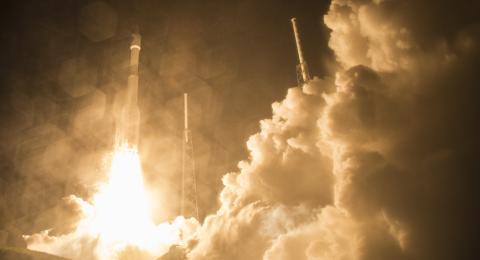The University of New Hampshire is one of only 13 land, sea, and space-grant institutions in the United States. UNH is designated as an R1 research institution and has significant expertise and resources related to the aerospace and manufacturing fields. For over 60 years, the university has worked with NASA on numerous missions and was recently awarded a $108 million NASA contract to develop instrumentation for a new satellite that will study coastal areas (the second largest contract NASA has awarded to a university in the last decade). UNH is also home to the John Olson Advanced Manufacturing Center which is focused on advanced manufacturing education, research, and innovation.
Marc Eichenberger
Associate Vice President and Chief Business Development and Innovation Officer
marc.eichenberger@unh.edu
(603) 862-5446
On June 9-10, 2021, the University of New Hampshire hosted a virtual, 2-day Aerospace Science and Manufacturing Sandpit. The event was one of UNH’s bi-annual industry-engagement events that promote innovation and collaboration between the university and industry by providing companies with direct access to UNH researchers working in the same field. The goal for these industry-focused events is to create opportunities for new partnerships between the university and the business community, ultimately to encourage economic development.
We've compiled the virtual tours and the bios/brief video introductions from the researchers that were featured during the sandpit so you can learn more about their work. Feel free to reach out to the researchers directly or contact Marc Eichenberger, director of corporate engagement for more information about collaborating with UNH.
Virtual Tours
Take a Virtual Tour of the UNH Space Science Center
Take a Virtual Tour of UNH's John Olson Center Advanced Manufacturing Center
Meet the Researchers
- Shawn Banker Director, University Instrumentation Center
- Momotaz Begum, Ph.D.Assistant Professor, Computer Science
- James Clemmons, Ph.D.Professor, Physics and Astronomy
- Suzanne Cooke, Ph.D. Lecturer in Biology, UNH Manchester
- Brad Kinsey, Ph.D. Professor Mechanical Engineering, Materials Science; Director, Project Director for NH BioMade, Center for Advanced Materials and Manufacturing Innovations (CAMMI)
- Marko Knezevic, Ph.D. Associate Professor, Mechanical Engineering, Integrated Applied Mathematics, Materials Science
- Weiwei Mo, Ph.D.Assistant Professor, Civil and Environmental Engineering
- John Roth, Ph.D. Director, John Olson Advanced Manufacturing Center
- Harlan Spence, Ph.D. Director, Institute for the Study of Earth, Oceans, and Space (EOS), Professor, Physics, Space Science Center
- May-Win Thein, Ph.D. Associate Professor of Mechanical Engineering, Associate Professor of Ocean Engineering, Director, Systems Design Ph.D. Program
- Chris White, Ph.D. Professor and Chair of the Department of Mechanical Engineering
- Kang Wu, Ph.D. Associate Professor, Chemical Engineering
- Qiaoyan Yu, Ph.D. Associate Professor of Electrical and Computer Engineering
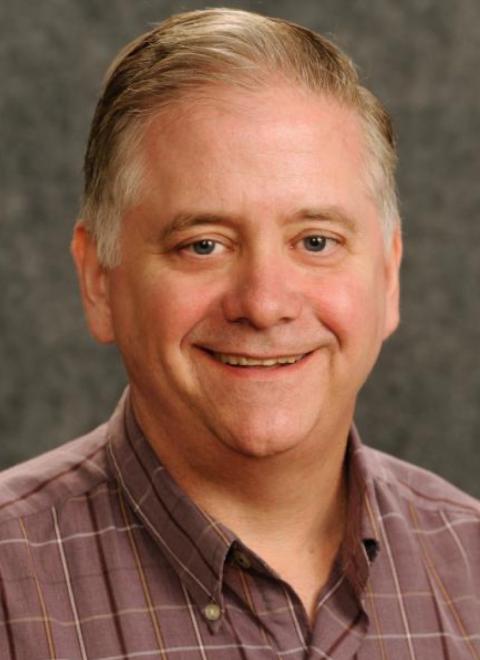
Shawn Banker - Director, University Instrumentation Center
shawn.banker@unh.edu
Shawn Banker serves as the Director of the University Instrumentation Center. Shawn holds a bachelor’s degree in Mechanical Engineering Technology and a master’s degree in business administration from the Whittemore School of Business at the University of New Hampshire. The early years of his career included designing automation equipment for a variety of industries including automotive, pharmaceuticals, medical, packaging and converting. The majority of his career was spent working for Velcro USA Inc. in Manchester and Somersworth, NH where he held many positions including Director of Manufacturing for their plastics operations and Director of Engineering. Shawn continues to stay involved with the UNH Engineering Technology program as a member of their Industrial Advisory board.
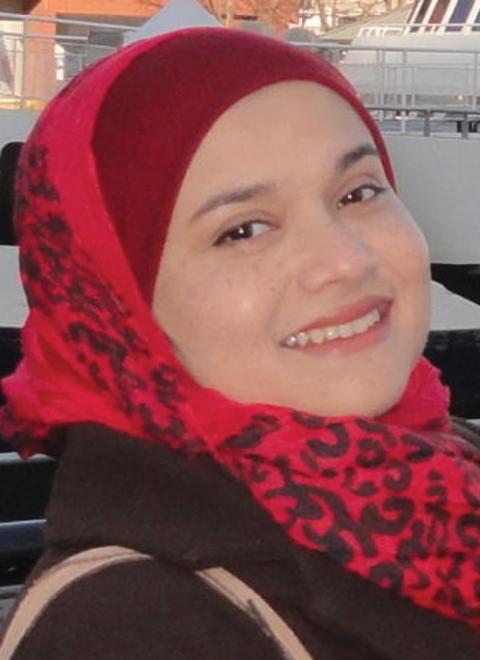
Momotaz Begum, Ph.D. - Assistant Professor, Computer Science
mbegum@cs.unh.edu
Momotaz Begum is an Assistant Professor of Computer Science at UNH and directs the Cognitive Assistive Robotics Lab (CARL). She holds a PhD and an M.Eng, both in Electrical and Computer Engineering, from the University of Waterloo and Memorial University, respectively. Momotaz works on designing perception and learning algorithms for robots that can enable seamless human robot interactions and collaborations. She was nominated for a best cognitive robotics paper award at IEEE International Conference on Robotics and Automation. Momotaz’s research is funded through NSF and IEEE.

James Clemmons, Ph.D. - Professor, Physics and Astronomy
James.Clemmons@unh.edu
James Clemmons works in the field of space physics. His interests include auroral phenomena, physics of the Earth’s ionosphere-thermosphere system, and the magnetosphere. Primary methods of inquiry are space experiments and instrumentation, as well as analysis of data. He serves as a Co-Investigator on NASA’s Van Allen Probes and Magnetospheric Multiscale missions. Recent sounding rocket experiments include the Auroral Jet and RENU-2 missions, and current projects include the VISIONS-2, TOMEX-Plus, and Dynamo-2 sounding rocket missions, the LLITED cubesat mission, analysis of data from the TWINS-ES experiment, and modeling of the atmospheric mass density anomaly beneath the earth’s magnetospheric cusp.
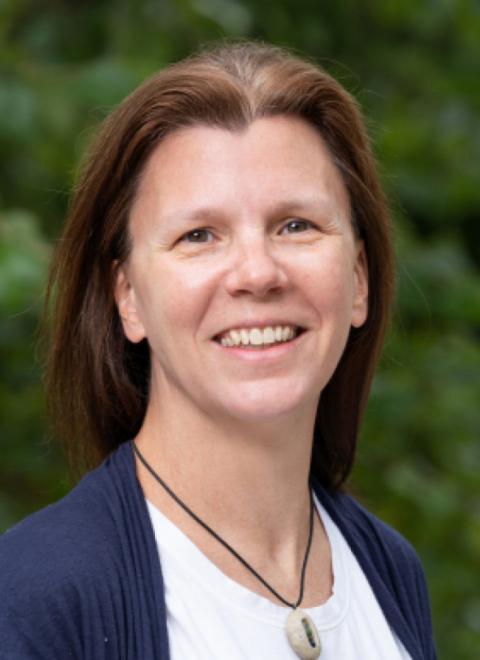
Suzanne Cooke, Ph.D. - Lecturer in Biology, UNH Manchester
Suzanne.Cooke@unh.edu
Dr. Sue Cooke is a Lecturer in the Department of Biology & Biotechnology at UNHM and faculty advisor to Team Cooke and the NoMADS (Novel Methods of Antibiotic Discovery in Space) project. She teaches numerous courses including both introductory and upper level biology courses as well as Discovery courses. She is passionate about science education and loves working with both majors and non-majors to increase science literacy. Her research background is in the behavior and physiology of marine invertebrates, but she now spends most of her time in the lab playing with dirt! Although she does not consider herself a microbiologist, in 2018 she had the opportunity to be the first faculty member from a NH institution to be trained in the protocols for student-sourcing the search for novel antibiotics from soil bacteria, which she integrated into two courses at UNH Manchester. The student work that has come out of these courses led to the development of her research program and the NoMADS project. NoMADS is a student-led project that was selected in a recent NASA Student Payload Opportunity with Citizen Science (SPOCS) competition to send an experiment to the International Space Station. The NoMADS project aims to examine the effects of the space environment on soil bacterial mutation rates and the subsequent production of novel secondary metabolites with antibiotic properties. An additional goal of the NoMADS project is to promote STEM education and encourage young people to pursue careers in STEM fields and, to that end, Team Cooke will be working extensively with educators in NH and presenting to K-12 students over the course of the project.

Brad Kinsey, Ph.D. - Professor Mechanical Engineering, Materials Science; Director, Project Director for NH BioMade, Center for Advanced Materials and Manufacturing Innovations (CAMMI)
bkinsey@unh.edu
Brad Kinsey is a Professor in the Mechanical Engineering Department and the Materials Science Program at the University of New Hampshire. He is also the Project Director for NH BioMade (a $20M, 5-year NSF EPSCoR grant), a Faculty Fellow for Research and Graduate Studies in the UNH College of Engineering and Physical Sciences (CEPS), and Director of the UNH Center for Advanced Materials and Manufacturing Innovations (a collection of 25 faculty members across CEPS). His research is on the mechanics, materials, and manufacturing innovations of deformation processes, with over 150 peer-reviewed publications.
Prof. Kinsey received his Bachelor’s degree from the University of Michigan in 1992 and his Master’s and Doctoral degrees from Northwestern University in 1998 and 2001 respectively, in Mechanical Engineering. His awards include Fellow status in the American Society of Mechanical Engineers, Fellow status in the Society of Manufacturing Engineers, Associate Member status in CIRP (International Institution for Production Engineering Research), a CAREER Award from US National Science Foundation, the Ralph R. Teetor Award from the Society of Automotive Engineers, and the UNH Assistant Professor of the Year Award. In 2013, he served as the Department of Energy Representative to the Advanced Manufacturing National Program Office which coordinates the Manufacturing USA network (formerly National Network for Manufacturing Innovation).
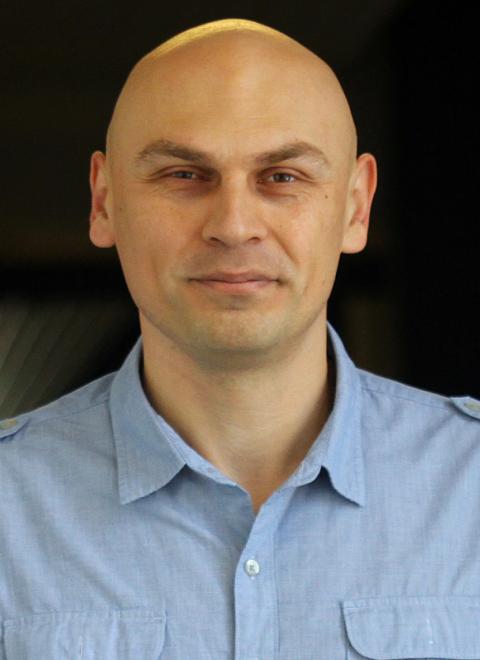
Marko Knezevic, Ph.D. - Associate Professor, Mechanical Engineering, Integrated Applied Mathematics, Materials Science
Marko.Knezevic@unh.edu
Marko Knezevic earned his BS/MS degree in Mechanical Engineering from the University of Novi Sad (Serbia) in 2004 and his Ph.D. in Materials Science and Engineering from Drexel University in 2009. After graduate school, he joined Scientific Forming Technologies Corporation in Columbus, OH from 2009 to 2011 as a principal research scientist for development of the commercial finite-element software DEFORM used for analysis of manufacturing processes. After industrial experience, he was with the Materials Science and Technology Division at Los Alamos National Laboratory in Los Alamos, NM from 2011 to 2013 as the LANL Seaborg Institute Postdoctoral Fellow. He then joined the faculty of the Mechanical Engineering Department. His research is focused on understanding of materials behavior under complex loading using a combination of computational methods and experiments, development of constitutive material models, design and manufacturing at component levels, materials design at microstructural length scales, as well as the development of high-performance computational applications integrating multi-scale material models for predicting materials behavior. His work has produced over 150 archival journal articles.
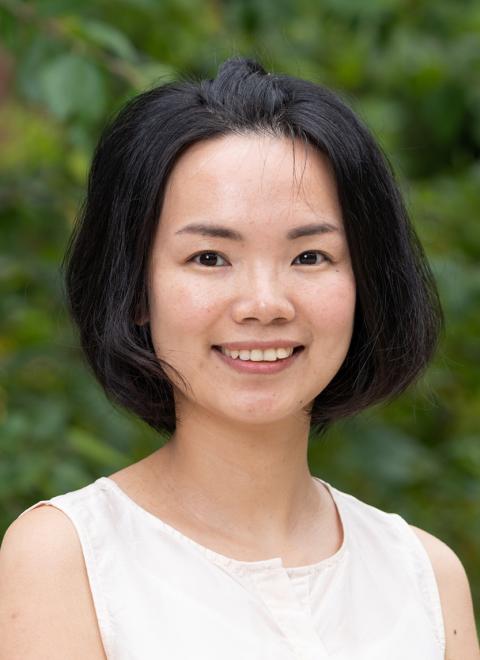
Weiwei Mo, Ph.D. - Assistant Professor, Civil and Environmental Engineering
weiwei.mo@unh.edu
Dr. Weiwei Mo is an assistant professor in the Department of Civil and Environmental Engineering at the University of New Hampshire. She got her BS degree from Shanghai Jiao Tong University in China (2008), and her MS (2011) and PhD (2012) degrees from University of South Florida. Before UNH, she was a post-doctoral associate at Yale University. Dr. Mo’s current research focuses on industrial ecology, infrastructure sustainability and resiliency, and community-engaged, consensus-based decision-making. She has led several National Science Foundation-funded projects, working on integrated planning of water and energy systems, spatial optimization of decentralized infrastructure systems considering user preferences, and crowdsourced monitoring for drinking water safety and resiliency. She is a recipient of the 2021 NSF CAREER Award. Dr. Mo also teaches undergraduate and graduate-level classes, including environmental pollution and control, environmental sampling and analysis, systems analysis of the environment, and life cycle assessment.
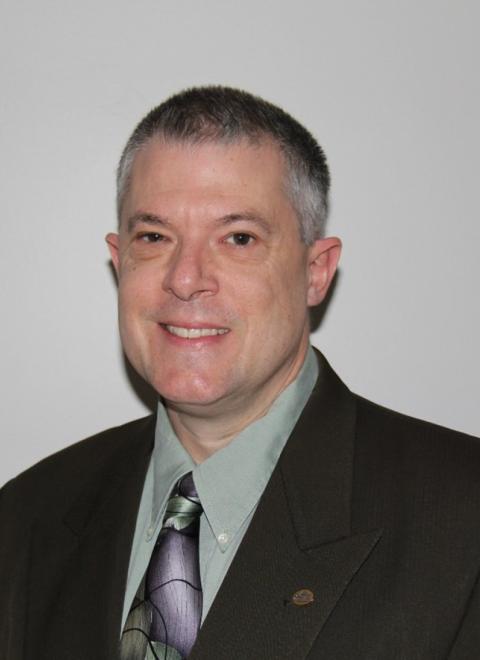
John Roth, Ph.D. - Director, John Olson Advanced Manufacturing Center
john.roth@unh.edu
As the Director of the John Olson Advanced Manufacturing Center, Dr. Roth leads the Olson Center’s regional, national, and international engagement. With the latest manufacturing equipment, automation devices and sensing technologies, the Olson Center provides hands-on, interdisciplinary learning opportunities in a factory environment and collaborates with industry to modernize traditional manufacturing technologies, advance and create new high-efficiency state-of-the-art materials and technologies, address the skills gap in U.S. manufacturing, and serves as a conduit for students and industry to the next-generation of manufacturing technologies.
Dr. Roth received a Ph.D. in Mechanical Engineering from Michigan Technological University in 1998 and, during his career, has built collaborative research programs with large international companies such as Ford, Boeing, and SKF, while also helping numerous small and medium manufacturers maintain global competitiveness through the modernization and deployment of advanced materials and manufacturing solutions.
With over 200 technical publications, and approximately 50 national and international technical patents and disclosures, Dr Roth’s industrially-based research and development experience covers a broad range of technology and manufacturing readiness levels and spans multiple fields, including manufacturing, materials, sensors, signal processing, prognostics/diagnostics, machine and sensor design, dynamic systems, cryogenics, and biomechanics.
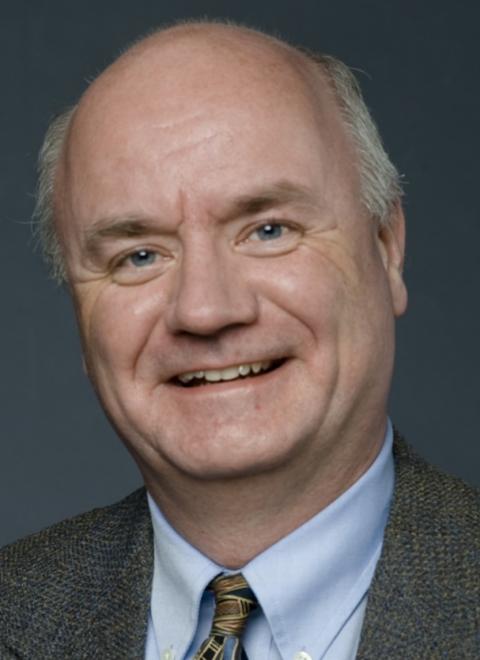
Harlan Spence, Ph.D. - Director, Institute for the Study of Earth, Oceans, and Space (EOS), Professor, Physics, Space Science Center
harlan.spence@unh.edu
Harlan Spence is a professor of physics and director of the Institute for the Study of Earth, Oceans and Space at the University of New Hampshire (UNH). Prior to UNH, Dr. Spence was a professor and department chair of the department of astronomy and a member of the Center for Space Physics at Boston University. Dr. Spence has also served as a senior member of the technical staff at The Aerospace Corporation.
Dr. Spence’s research interests include theoretical and experimental space plasma physics, cosmic rays and radiation belt processes, and physics of the heliosphere, planetary magnetospheres, and the aurora. He has served on multiple NASA and NSF advisory panels including the NASA Living with a Star Management Operations Working Group and the NASA Earth-Sun System Subcommittee. Dr. Spence received his Ph.D. in geophysics and space physics from the University of California-Los Angeles.
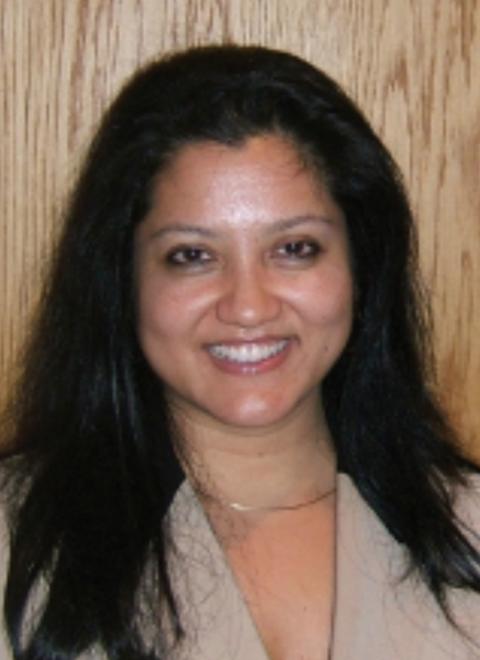
May-Win Thein, Ph.D. - Associate Professor of Mechanical Engineering, Associate Professor of Ocean Engineering, Director, Systems Design Ph.D. Program
May-Win.Thein@unh.edu
Dr. Thein joined the Department of Mechanical Engineering in 1999. Since then, she has served as a visiting scholar/fellow and/or lecturer at the Flight Dynamics Analysis Branch at the NASA Goddard Space Flight Center, the NAVSEA Naval Underwater Warfare Center (NUWC) Division Keyport, the Department of Applied Mathematics at the University of Sheffield (Sheffield, UK), the Department of Engineering at the University of Leicester (Leicester, UK), and the Institute of Industrial and Control Engineering at the Polytechnic University of Catalonia (Barcelona, Spain). Dr. Thein was also named a United Kingdom Royal Society Fellow in 2007 for her international collaborative research in spacecraft control. She has held memberships in AACC, AIAA, ASME, IEEE (CSS IAC, WiC, WIE), Phi Eta Sigma, Pi Tau Sigma, SAE, Sigma Xi, SWE, and Tau Beta Pi.
Dr. Thein’s field of specialization is in the area of System Dynamics and Control. Her studies involve nonlinear estimation and control with particular emphasis on applications for autonomous space, air, ground, ocean surface, and underwater vehicles. Such applications include multi/cross-platform vehicle control, automated real-time path planning and collision avoidance, performance evaluation of autonomous systems, robust/adaptive platform estimation and control and fault-tolerant disturbance rejection, spacecraft constellation control and Earth-based experimental platform verification, Unmanned Aerial Vehicle (UAV)-based remote sensing, UAV-based magnetic anomaly and unexploded ordinance detection, UAV real-time platform control via machine vision/learning, decentralized formation control via Artificial Potential Fields, extraterrestrial surface search and exploration via Particle Swarm Optimization, spacecraft attitude and orbit determination and control.

Chris White, Ph.D. - Professor and Chair of the Department of Mechanical Engineering
christopher.white@unh.edu
Dr. Christopher White is Professor and Chair of the Department of Mechanical Engineering at the University of New Hampshire.
Dr. White received his Ph.D. in Mechanical Engineering from Yale University in 2001. From 2001-2004 he was Postdoctoral Research Fellow at Stanford University. Following his post-doctoral work, he joined Sandia National Laboratories as a Senior Member of the Technical Staff in the Combustion Research Facility. His principal duties at Sandia included lead investigator in the Advanced Hydrogen Fueled Engine Laboratory. In 2006, he joined the Mechanical Engineering Faculty at the University of New Hampshire.
Dr. White’s research expertise and interests are broadly motivated by applications related to the production, storage, distribution, conversion and end-use applications of energy. His research to date is of both fundamental and applied nature in the areas of turbulent boundary layers, turbulent drag reduction, combustion, and thermal control. Dr. White currently has funding from the National Science Foundation, the Office of Naval Research and Naval Air Systems Command.
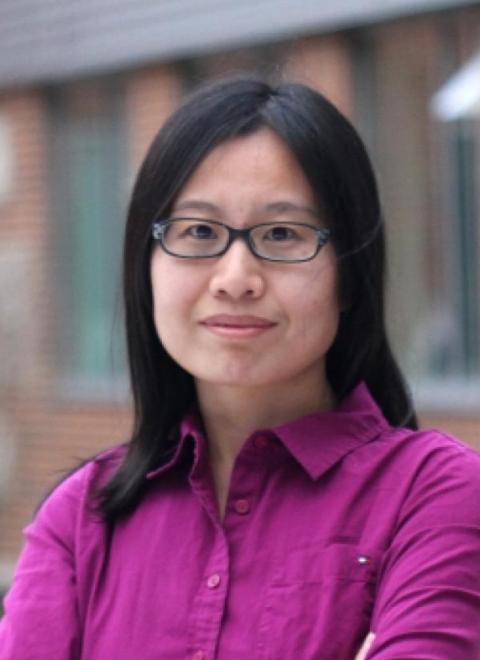
Kang Wu, Ph.D. - Associate Professor, Chemical Engineering
kang.wu@unh.edu
Dr. Kang Wu got her Ph.D. from the University of Illinois at Urbana-Champaign in 2010. After working as a postdoctoral research associate at the Energy Biosciences Institute at UIUC for two years, she joined the Department of Chemical Engineering at the University of New Hampshire. Her group mainly focuses on engineering bacterial systems for protein and peptide synthesis, including developing genetic tools for efficient genome editing of bacterial species, developing bacterial spores as the host and carrier for protein and peptide synthesis, as well as bioreactor design and characterization for large scale production. The systems she has been working on have a broad range of applications from the oral delivery of vaccines, therapeutics, and food additives to bioremediation and conversion of waste to valuable products.
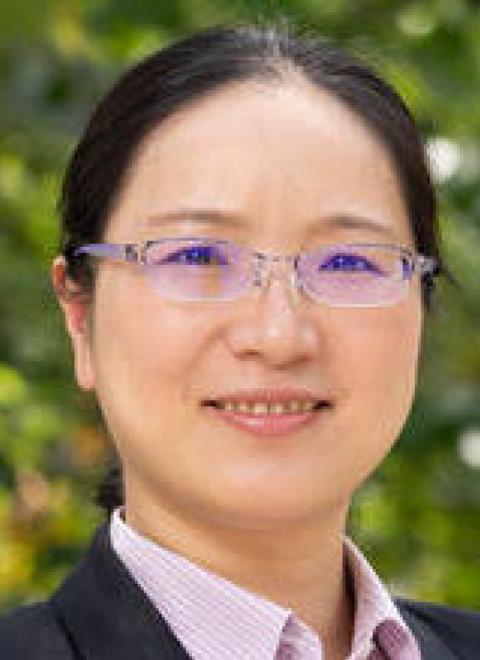
Qiaoyan Yu, Ph.D. - Associate Professor of Electrical and Computer Engineering
Qiaoyan.Yu@unh.edu
Dr. Qiaoyan Yu is Associate Professor of Electrical and Computer Engineering at the University of New Hampshire, where she also directs the Reliable & Secure VLSI Systems Laboratory. Dr. Yu’s research expertise includes hardware Trojan detection, side-channel attack mitigation, 3DIC and embedded system security, cybersecurity, and VLSI fault tolerance. Dr. Yu received her B.S. from Xidian University (2002), M.S. in Communication and Information Engineering from Zhejiang University (2005), and the Ph.D. in Electrical and Computer Engineering from the University of Rochester (2011). Dr. Yu’s research expertise includes hardware security with special emphases on integrated circuit security, FPGA security, embedded system security, Internet-of-Things (IoT) security, approximate computing security, and Networks-on-Chip architecture for fault tolerance and error management.
Dr. Yu received the NSF CAREER Award and the Air Force Research Lab Faculty Fellowship in 2017. Her work was also supported Semiconductor Research Corporation (SRC) and UNH NSF Nanomanufacturing Center. She received the Best Poster Award at ISVLSI’16, Best Paper Award Finalist in MWSCAS’15, Best Paper Award Finalist in NOCS’11, and the Best ECE Ph.D. Dissertation Award at the University of Rochester in 2011. She received the Excellence in Teaching Award at UNH in 2015. She has served on the technical program committees of HOST, Asian HOST, DAC, ASP-DAC, GLSVLSI, ISVLSI, DFT, ISCAS, MWSCAS, and ICCD.
